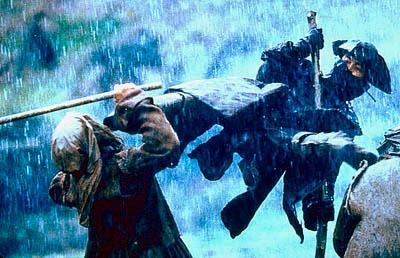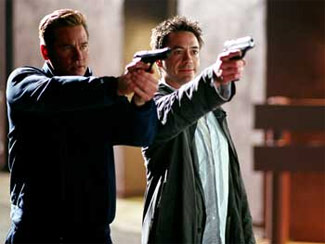
As you're all well aware, I'm a reality TV junkie. I watch Top Chef, Project Runway, Little People Big World, Dirty Jobs, Mythbusters, Dinner: Impossible, Ace of Cakes, What Not to Wear, and even (gulp) The Hills. But, of course, the class of the reality shows, at least as far as Gospel theology goes, is The Bachelor. Clearly, it's not the best hour of TV entertainment on this list (in fact, other than The Hills, I prefer ALL these other shows), but it so clearly illuminates the Law vs. Gospel distinction that we talk about in these pages.
Picture it: A man and a woman go on a date. Will it work? Is there chemistry? On the old-school show Blind Date, the climax was always when the participants turned to the camera and said whether or not they would go out on another date. As you might imagine, the men almost always said they would, and the women almost universally said that they wouldn't. On The Bachelor, the question is, "Will he give her a rose or won't he?" This is how a bachelor lets us know that he wants to go on another date with this woman. The wrinkle is that if he DOESN'T give her a rose, she has to go home immediately. She has to be packed and ready to go before the date.

The hilarious (and profound) addition on the Bachelor is that they turn the ethereal pressure of a date into a physical object: a rose. And then, they have the rose sitting there for the whole date! Both people comment about how the rose ruins the evening. They can't stop looking at it, wondering what the outcome will be.
We've said before, and in fact, we say often, that judgment kills love. It's one of the maxims that we live by. The presence of the rose is the embodiment of judgment. The sword of Damocles (will he or won't he) hangs over the date from the very beginning. The knowledge of impending judgment kills any possibility of love. Rather than discovering whether or not she is in love with the bachelor, the woman toils under the weight of being the kind of person who gets a rose. And, so, love dies.
The conclusion? Love can thrive only without judgment; without roses. What if The Bachelor gave the rose to the girl at the beginning of the date? Before she proves her worth? What might happen then? They could get to know one another without the pressure, without the judgment, and see if they might fall in love.
















